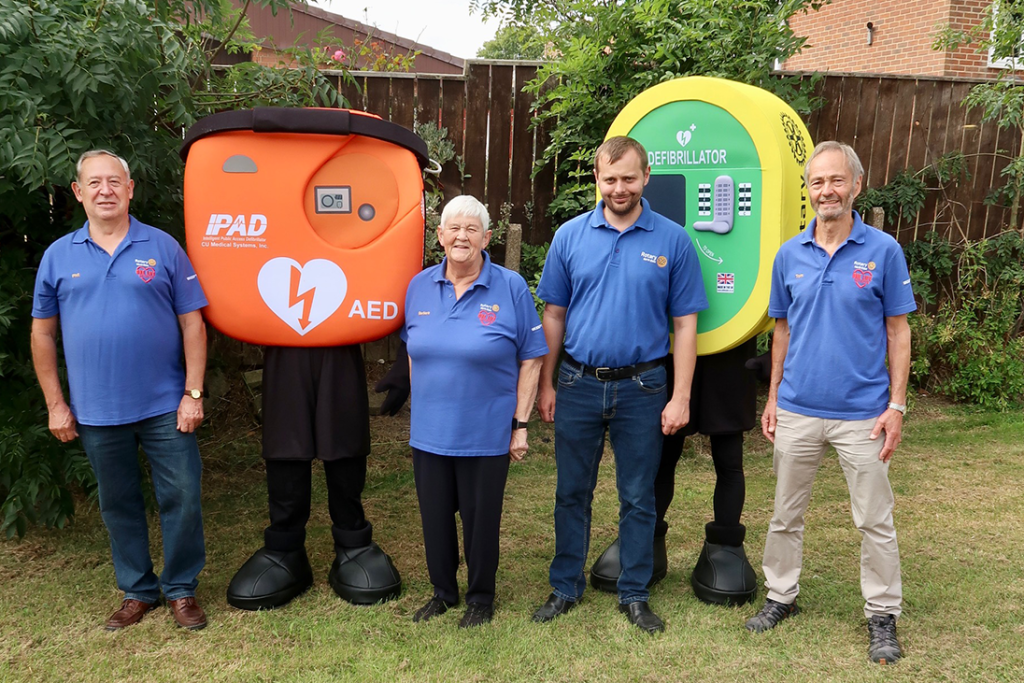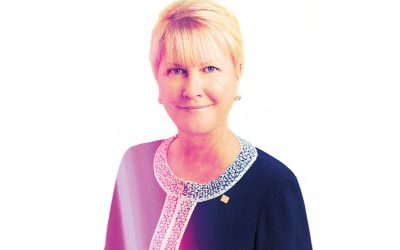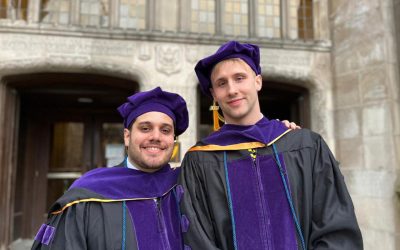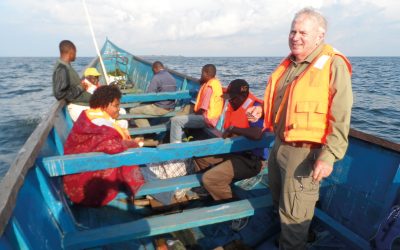Antony Ryan was swimming with two friends off Roker Beach in Sunderland. He was wearing a wet suit and had a tow float with him. About 100 metres offshore the trio rested, but his friends saw him floating on his back and realised something was wrong….
Antony had experienced a cardiac arrest. His friends got him back to the beach, shouting for help, and two bystanders came to their aid and started CPR. Two off duty nurses then joined them.
They called 999 and one nurse ran to retrieve a nearby public access defibrillator. CPR and two shocks from the defibrillator and Antony started breathing again.
Listen to this article
On arrival of the ambulance service staff and the Great North East Air Ambulance, Antony received two further shocks and was stabilised.
He was ultimately taken to the Freeman Hospital in Newcastle where he had a pacemaker/defibrillator implanted. And fortunately, it’s never been needed.
This story was told by Antony, who is 52, to Phil Hopps while they were on a Defibrillator Awareness walk in Washington, Tyne and Wear.
It was an event attended by Rotary North East’s ‘One Life Initiative’, which enables communities to site life saving community defibrillators across the patch, and which Phil helps lead.
Phil said: “On discussing his experience he said to me that it was a miracle. And if it hadn’t been for the help everyone gave him and the availability of a defibrillator his kids wouldn’t have a dad.
“It brought it home to me again just how valuable community defibrillators are. If just one life is saved, it makes it all worthwhile.”
Phil runs the initiative with the small team of North East Rotarians – himself, Tom Sharples and Barbara Broadbelt from Durham Elvet and Tony Jackson from Newton Aycliffe.
It was started in 2020/21, when Barbara was Rotary North East District Governor. It’s now in its third year and has seen the siting of more than 75 defibrillators in places such as Middlesbrough, Sunderland, Saltburn, Washington, Peterlee, Seaham, Consett, Durham and Bishop Auckland, with more in the pipeline.
One of the first to be commissioned was in a disused phone box on Palace Green near the Durham Cathedral World Heritage Site.


One of the first community defibrillators to be commissioned by the One Life Initiative was in Durham.
Phil explained the history: “It was originally going to be a one year project, but two things happened. One was the pandemic, which stopped everything, and the other was the enthusiasm with which people wanted to get involved.”
Rotary doesn’t fund the defibrillators, but offers advice and help with community fundraising. The initiative has a partnership with WEL Medical Ltd, who supply defibrillators and cabinets. And they are often installed by local electricians cut price or free.
‘One Life’ also delivers familiarisation sessions to show people how they work and how to do CPR.
The equipment can be sited in all sorts of places – outside shops, pubs, community centres – as long they are accessible to the community.
The team maintains a close liaison with the North East Ambulance Service, who have publicly acknowledged the work Rotary has done to increase the number of defibrillators across the north-east and by raising awareness through community engagement.”
Phil tells a story of how a local cricket club had a defibrillator sited inside the pavilion, obviously only useable when the premises were open.
“They heard about our project and we worked with them to resite it outside the club. It was funded by a community effort and installed free by a local electrician.
“And the very next day it was used to save someone’s life.”
The initiative has had a secondary, unexpected benefit. At one site – a local village community hall of which Tom is the Chairman – the defibrillator was vandalised by a number of youths, who were identified.
Instead of rapping them over the knuckles, in partnership with the local police, the initiative brought them in and taught them about defibrillators and CPR. So far nearly 80 young people have been through the process and received much prized certificates of achievement from the local MP.


Phil runs the initiative with the small team of North East Rotarians – himself, Tom Sharples and Barbara Broadbelt from Durham Elvet and Tony Jackson from Newton Aycliffe.
The team continues to promote the initiative across the region. To help, Tom came up with the idea of using two mascot costumes – dubbed Sparky and Casey – which go along to village fetes, community events, schools and the like.
“Children love them and they make people smile and spark interest in the adults,” said Phil.
Phil and his colleagues spend a lot of time on the road, helping communities start their own fund-raising activities and providing help and advice to interested parties, from the early considerations through to the ongoing requirements once a defibrillator has been installed.
The team maintains a close liaison with the North East Ambulance Service, who have publicly acknowledged the work Rotary has done to increase the number of defibrillators across the north-east and by raising awareness through community engagement.
Phil acknowledges the project has taken over a slice of his life – meeting communities, checking defibrillators, talking to fundraisers.
“When my wife and I go out for a drive she’ll often say – I don’t know where we’re going, but I know there’ll be a defibrillator at the end of it.”


























































